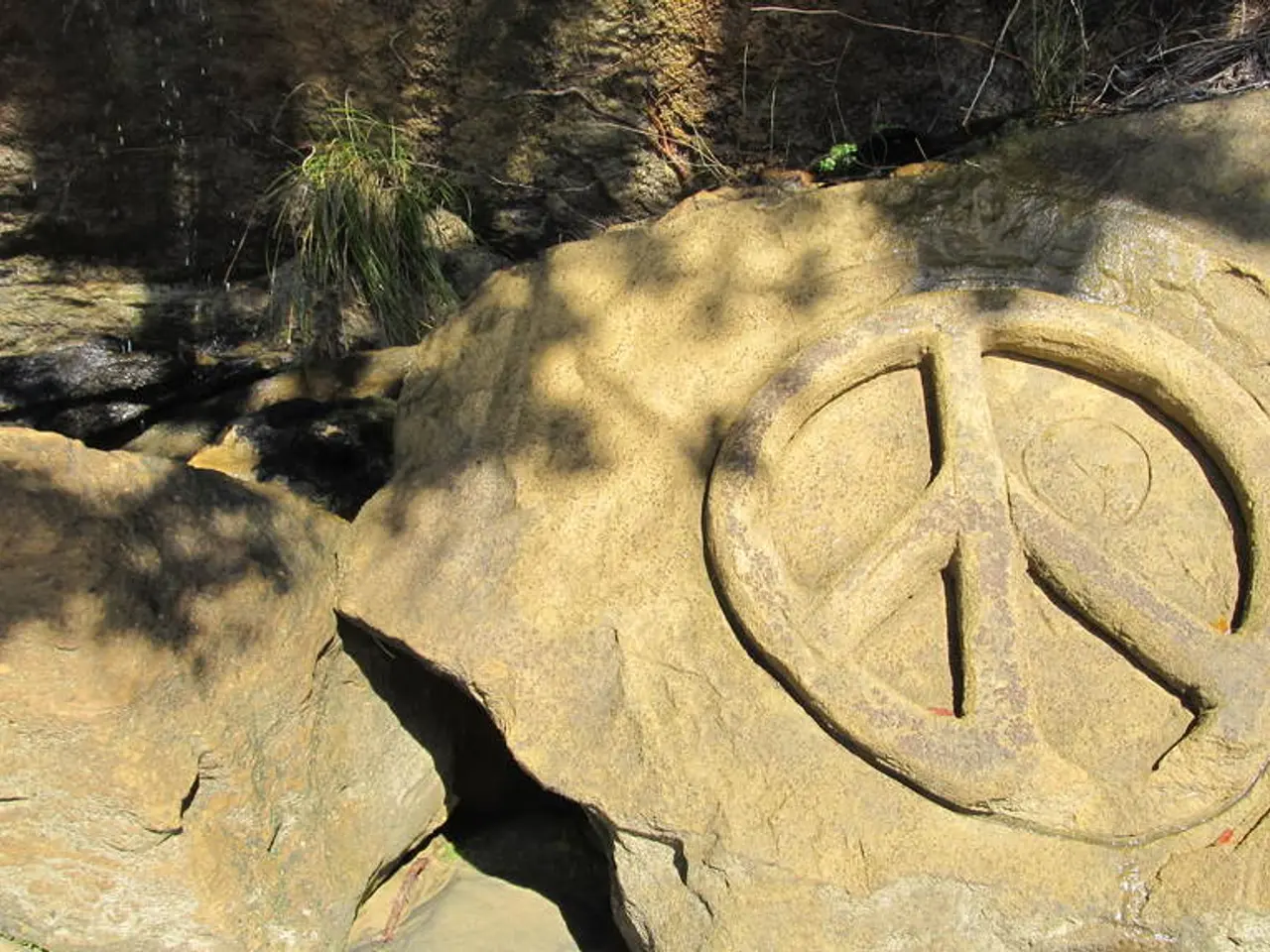Relentless Force at Play: Refusal to be Halted in Our Pursuit
In the tumultuous era of Nero (AD 54–68), philosophers like Seneca and Epictetus faced a complex web of political unrest, personal hardships, and the challenge of practicing Stoic philosophy under a volatile emperor.
Seneca the Younger, Nero’s tutor and advisor early in his reign, initially enjoyed a position of influence and relative stability. Known for his positive writings about Nero during these years, Seneca's cooperation and political engagement with the emperor's court are evident. However, the political climate was fraught with tension, marked by extravagance, economic strain, and increasing authoritarianism. Seneca's fall from favour and subsequent forced suicide in AD 65, accused of involvement in a conspiracy against Nero, underscores the precariousness of life for philosophers even when close to power during Nero's reign.
Epictetus, born around AD 55, was a Stoic philosopher known for teaching ethics and the importance of inner freedom regardless of external circumstances. Living somewhat apart from the imperial court and remembered for his religious and moral tone in his teachings, Epictetus emphasized endurance of hardship and control over one’s own mind. The turbulent political environment under Nero and the general social indifference towards rigorous intellectual engagement may have influenced the content and style of Epictetus’s work, focusing on practical ethics in the face of uncertainty.
The political turmoil under Nero included economic difficulties, extravagant public works that drained the state treasury, and eventually chaos following Nero’s death, culminating in the Year of the Four Emperors. For philosophers, this meant persistent instability and risk, especially for those entangled with imperial politics.
Comparing the hardships faced by Seneca and Epictetus under Nero to those described later by Marcus Aurelius in his *Meditations*, there are clear parallels in political instability and personal adversity. Marcus Aurelius wrote during a later period of Roman imperial challenge (AD 161–180) and sought Stoic tranquility amid external chaos. His *Meditations* reflect a philosophical response to political turmoil and personal difficulty, much like Seneca’s and Epictetus’s teachings did earlier, although Marcus had the advantage of imperial authority himself.
In summary, Seneca experienced both influence and eventual downfall, embodying the risks of proximity to Nero’s court. Epictetus lived more removed from direct political power but developed a philosophy aimed at inner resilience during turbulent times. Both philosophers navigated significant political and personal hardships reflective of Nero’s reign’s instability. Their Stoic teachings emphasized endurance, rationality, and virtue amid external chaos, themes later echoed in Marcus Aurelius’s *Meditations* but from the perspective of an emperor facing similar challenges decades later.
This shared Stoic response to adversity underlines how philosophers adapted their teachings to survive and find meaning in periods of political upheaval and personal trial. However, we must not despair. We must not let others break our will or make us like them. Our job is to keep flowing with determination and virtue, regardless of the mud thrown at us or the challenges we face. Marcus Aurelius, in Meditations, compares the goodness within us to an underground spring that can carry away mud and dung, symbolizing our determination to keep going and make a difference.
Philosophers like Seneca and Epictetus, though navigating different aspects of Nero's reign – Seneca initially holding a position of influence and Epictetus living somewhat apart from the imperial court – both experienced significant political and personal hardships, focusing on cultivating inner resilience through Stoic teachings. In the face of adversity, their emphasis on endurance, rationality, and virtue serves as a testament to personal growth and education-and-self-development, providing guidance and inspiration for relationships and lifestyle even amidst turbulent times, much like Marcus Aurelius's teachings in his Meditations echoed decades later.




